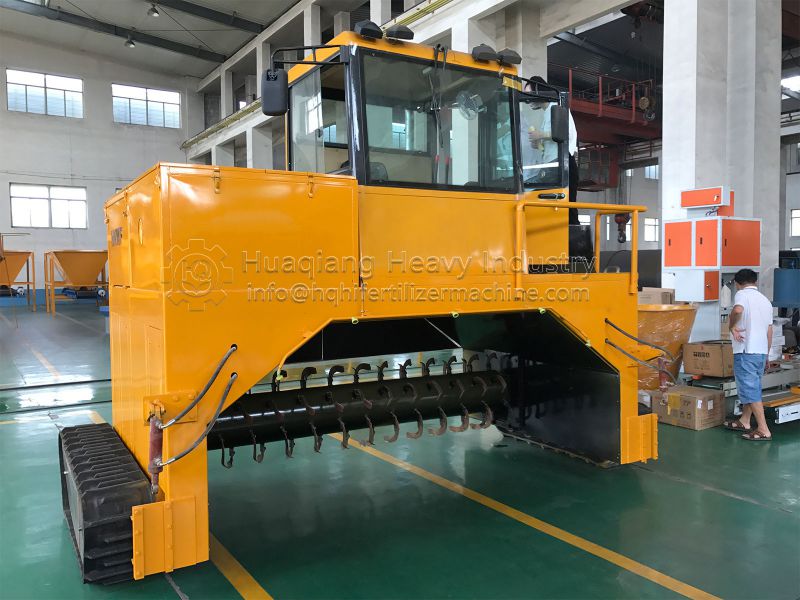Under the trend of green agricultural development, the bio-organic fertilizer production line, with its unique technological advantages, has become a key piece of equipment driving the transformation and upgrading of the fertilizer industry.
The production line’s technical core lies in three dimensions: First, a precise batching system. Automated equipment precisely controls the ratio of raw materials and inoculants, ensuring stable microbial activity and balanced nutrient distribution. Second, intelligent fermentation control. Sensors monitor the compost temperature, humidity, and oxygen content in real time, automatically adjusting the turning frequency and ventilation rate of the compost turning machine to shorten the fermentation cycle and improve compost maturity. Third, low-temperature post-processing technology utilizes a 60-80°C drying process to prevent high temperatures from damaging microbial activity and organic matter structure, thereby maximizing the nutrient value of the fertilizer.

From an industry perspective, the bio-organic fertilizer production line offers multiple benefits: For the livestock industry, it effectively disposes of waste such as livestock and poultry manure, addressing environmental concerns. For agricultural production, the bio-organic fertilizer produced improves soil compaction and fertility, reducing reliance on chemical fertilizers and promoting improved crop quality and efficiency. For the ecological environment, the fully closed-loop production process reduces pollutant emissions and promotes the recycling of agricultural waste.

